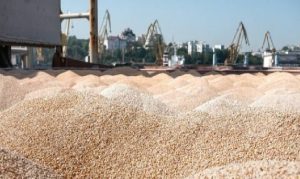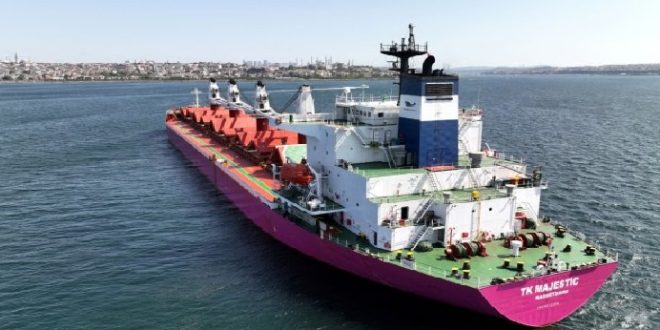18-07-2023
MOSCOW: The Kremlin says Russia has halted its participation in a deal that allowed war-torn Ukraine to ship grain through the Black Sea to parts of the world struggling with hunger, dealing a blow to global food security after Moscow’s invasion last year sent prices soaring.
 The United Nations and Turkey brokered the landmark accord with Ukraine and Russia in July last year, which came with a separate agreement to facilitate shipments of Russian food and fertilizer that Moscow insists has not been applied.
The United Nations and Turkey brokered the landmark accord with Ukraine and Russia in July last year, which came with a separate agreement to facilitate shipments of Russian food and fertilizer that Moscow insists has not been applied.
The Black Sea deal has been extended several times and was due to expire on Monday evening as Russia refused any further extension citing its reasons.
More than 32 million metric tonnes of corn, wheat and other grains have been exported by Ukraine under the arrangement, with the last ship leaving Ukraine on Sunday.
“The Black Sea agreements ceased to be valid today,” Peskov told reporters on Monday afternoon.
“Unfortunately, the part of these Black Sea agreements concerning Russia has not been implemented so far, so its effect is terminated,” he said, adding that Moscow would “immediately” return to the deal “as soon as the Russian part of the agreements is fulfilled”.
Russia has notified Turkey, Ukraine and the UN that Moscow is against extending the deal, said Maria Zakharova, a spokesperson for the Russian foreign ministry.
 The halting of the grain deal came just hours after Russia said Ukraine had attacked a bridge linking it to the annexed Crimean Peninsula.
The halting of the grain deal came just hours after Russia said Ukraine had attacked a bridge linking it to the annexed Crimean Peninsula.
Peskov said the decision not to renew the deal was unrelated to the overnight attack, which he called a “terrorist act” and blamed on Ukraine.
Ukraine and Russia are two of the world’s biggest agricultural producers, and major players in the wheat, barley, maize, rapeseed, rapeseed oil, sunflower seed and sunflower oil markets. Russia is also dominant in the fertilizer market.
Russia’s invasion of Ukraine in February last year sent food commodity prices surging to record highs last year, contributing to a global food crisis also tied to other conflicts, the lingering effects of the COVID-19 pandemic, droughts and other climate factors.
High costs for grain needed for food staples in countries in the Middle East and Africa exacerbated economic challenges and helped push millions more people into poverty or food shortage. (Int’l News Desk)
 Pressmediaofindia
Pressmediaofindia




